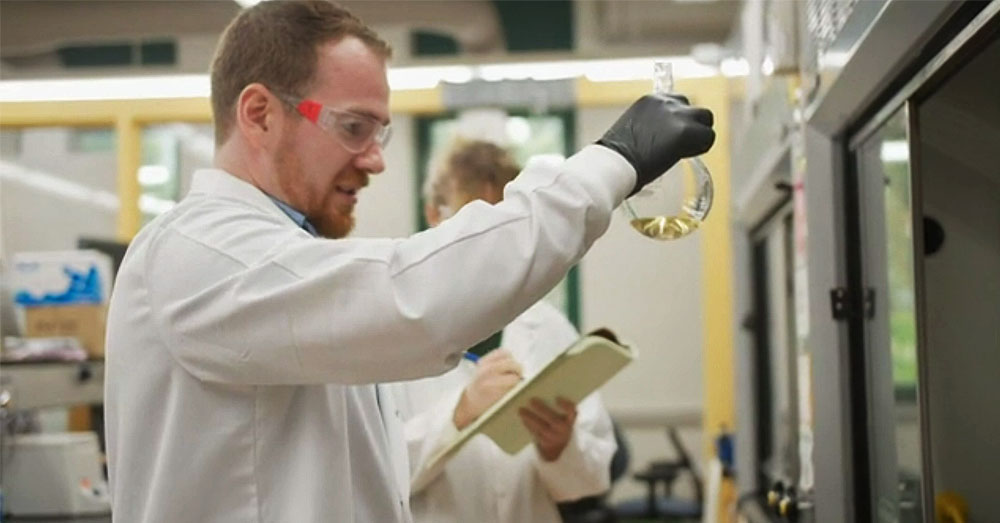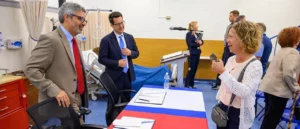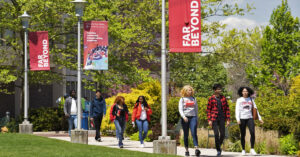Our planet is choking on plastic. The only solution is to change how we produce, consume, and dispose of it. SUNY research is doing just that.
SUNY ESF scientists Dr. Christopher Thomas, Dr. Ryan Scheel and Dr. Bandaru Ramarao, with support from the Center for Sustainable Materials Management, developed a biotechnology that produces a suite of fully biodegradable bioplastics from agro-industrial wastes. Using bacteria to upcycle wastes like this into bioplastic isn’t new, but the team made a critical twist that is.
Polyhydroxyalkanoate (PHA) technologies have been commercialized in various forms since the 1980s. However, issues with cost and control of material properties have made it difficult to broadly replace conventional plastics in commodity applications. The team fine-tuned the way these bioplastics can be made from abundant and cheap waste materials. This development not only imparts easy control over performance factors such as flexibility, melting temperature, and barrier properties, but also paves the way for sustainably scalable production that can disrupt commodity markets.
“We are able to produce targeted, novel, and unique bioplastics to suit the needs of a wide range of customers,” explains Dr. Ramarao. “The TAF award has positioned us to create products from a fully biodegradable single-use coffee cup to the small clear window in a box of pasta.”
The Technology Accelerator Fund award included a market assessment that identified potential customers, investors, and partners. Thomas founded the startup Retrn to develop and commercialize the TAF-funded technology, using the TAF market assessment as his bedrock.
Retrn is partnering with paper manufacturers to replace toxic plastic barrier coatings in food packaging. Given that single-use consumer packaging is the primary driver of plastic pollution, the potential environmental benefits of the technology are on a global scale.
The beachhead market and target prototype is a fully biodegradable and recyclable paper-based coffee cup. The partners are working with Retrn to meet product performance and manufacturability metrics required to adopt the product at scale. In turn, Thomas and Ramarao will use the TAF funds to buy equipment, materials, supplies, and labor to produce the prototype.
Dr. Thomas and his research partners talk about their processes and how TAF is helping the work grow in the video below:




